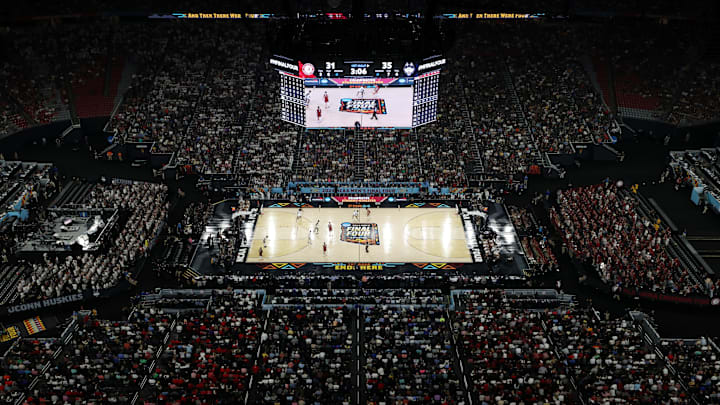Alabama Basketball has never held a position in any assessment of college basketball's 'Blue Blood' status. What has changed is the hope Nate Oats has given Crimson Tide fans that reaching elite status is possible.
All basketball fans know what 'Blue Blood' generally means despite the lack of a precise definition. For example, with back-to-back NCAA Tournament Championships in the last couple of decades, does Florida qualify as a Blue Blood? I suggest a more stringent standard that does not include the Gators.
I have followed college football through College Football News (CFN) for years. The platform provides the broadest range of information on every FBS team. Given their name, how much expertise does CFN provide for college basketball? The site has recently provided useful information for Alabama basketball fans trying to understand how far the Crimson Tide must progress to achieve Blue Blood status.
As a basic requirement, Alabama must win multiple NCAA Tournament Championships. CFN's standard is measured by the number of "20-win seasons, and ... three or more NCAA Tournament championships." What makes the CFN calculations interesting is their current ranking of CBB's top 50 programs including Alabama and other 'not Blue Bloods.'
CFN calculated CBB's Blue Bloods as being topped by the Kentucky Wildcats, followed, in order, by North Carolina, Duke, UCLA, Kansas, Louisville, Syracuse, Villanova, Indiana, and UConn. According to CFN, the Alabama Crimson Tide is ranked No. 31 out of the top 50 college basketball programs. Current and soon-to-be SEC programs ranked above Alabama are Arkansas at No. 23 and Texas at No. 24. Also making the top 50 are Tennessee at No. 39, Missouri at No. 46, and Florida at No. 47. SEC teams coming close to the top 50 are LSU and Vanderbilt.
Another way of looking at Blue Bloods is to include recency. An argument can be made that UCLA, once the most blue of Blue Bloods is elite no more. If a recency standard is used going forward from the 1980 season, the Bruins have only one NCAA Tournament Championship. Eleven other programs (including Arkansas) have won the Big Dance just once, from 1980 forward.
My suggestion for a current Blue Blood standard is three NCAA Tournament Champions from 1980 through 2024. It is an arbitrary standard that tries to honor both history and relevancy. If used, the two Championships by Florida (2007, 2008) and Indiana (1981, 1987) do not qualify the Gators and Hoosiers as Blue Bloods.
College Basketball's True Blue Bloods
- UConn Huskies - Six NCAA Tournament Championships - 2004, 2011, 2014, 2023 and 2024
- Duke Blue Devils - Five NCAA Tournament Championships -1991, 1992, 2001, 2010 and 2015
- North Carolina Tar Heels - Five NCAA Tournament Championships -1982, 1993, 2005,2009 and 2017
- Kansas Jayhawks - Three NCAA Tournament Championships -1988, 2008 and 2022
- Louisville Cardinals - Three NCAA Tournament Championships -1980, 1986 and 2013
- Villanova Wildcats - Three NCAA Tournament Championships -1985, 2016 and 2018
- Kentucky Wildcats - Three NCAA Tournament Championships -1996, 1998 and 2012
Based on my suggested criteria, Alabama Basketball is a long way from Blue Blood status. The difference now is because of Nate Oats there is reason to believe the Crimson Tide can get there.
The list of every NCAA Tournament Champion going back to 1939.
